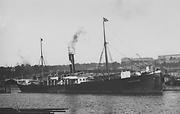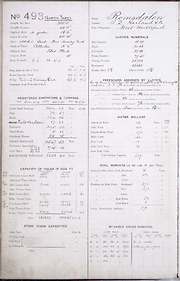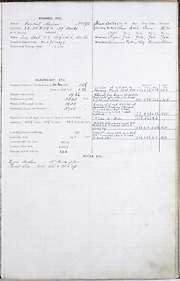 Hartlepool Sports & Leisure
Hartlepool Sports & Leisure
- Cinemas, Theatres & Dance Halls
- Musicians & Bands
- At the Seaside
- Parks & Gardens
- Caravans & Camping
- Sport
 Hartlepool Transport
Hartlepool Transport
- Airfields & Aircraft
- Railways
- Buses & Commercial Vehicles
- Cars & Motorbikes
- The Ferry
- Horse drawn vehicles
 A Potted History Of Hartlepool
A Potted History Of Hartlepool
- Unidentified images
- Sources of information
- Archaeology & Ancient History
- Local Government
- Printed Notices & Papers
- Aerial Photographs
- Events, Visitors & VIPs
 Hartlepool Trade & Industry
Hartlepool Trade & Industry
- Trade Fairs
- Local businesses
- Iron & Steel
- Shops & Shopping
- Fishing industry
- Farming & Rural Landscape
- Pubs, Clubs & Hotels
 Hartlepool Health & Education
Hartlepool Health & Education
- Schools & Colleges
- Hospitals & Workhouses
- Public Health & Utilities
- Ambulance Service
- Police Services
- Fire Services
 Hartlepool People
Hartlepool People
 Hartlepool Places
Hartlepool Places
 Hartlepool at War
Hartlepool at War
 Hartlepool Ships & Shipping
Hartlepool Ships & Shipping

Romsdalen Gallery
Gallery images
Related items :
 Harland & Co.
Harland & Co.
The company of G.B. Harland & Co. was formed in 1883 with their first steamer Duchess. As well as owning eleven ships throughout the time the company traded they also managed ships.
Family History:
George Blenkhorn Harland was born in 1848 at Sandsend, Yorkshire to parents Thomas and Mary (nee Blenkhorn). He married Isabella Marshall at Hinderwell in 1874. On the 1881 census he was listed as a commercial clerk and the family were living at Milton Road, Stranton. By 1891, still living at the same address, he was listed as being a shipowner. At the time of his death on 6 August 1924 aged 76 George was living at ‘Brooklyn’ Grange Road, West Hartlepool. The family also owned a house at Glaisdale where they spent much of their time. He was survived by his widow and five children. On his death he did not leave a will but his effects amounted to £171,577.
More detail » Hartlepool Ship Losses - First World War
Hartlepool Ship Losses - First World War
This section will, in time, contain the stories of more than 450 merchant ships built or owned in the Hartlepools, and which were lost during the First World War. As an illustration of the truly global nature of shipbuilding, these ships were owned by companies from 22 different countries, including more than 30 sailing under the German flag at the outbreak of war.
 Romsdalen - a general history
Romsdalen - a general history
Completed April 1895; Official No. 102729: Code Letters NTGL.
Owners: 1895 G.B. Harland & Co, West Hartlepool
Masters: 1895-98 WR Willis: 1899-1900 J Harland: 1903 J Willis: 1904-08 E Whitten: 1909-11 J Morgan: 1915-17 AE Dove.
Dundee Evening Telegraph, Friday, April 4th, 1913:
DUNDEE SEAMAN'S ALLEGED ATTEMPT TO SET FIRE TO A STEAMER. Three Men's Lives in Danger.
A sensational story of a seaman's attempt to set fire to the West Hartlepool steamer Romsdalen was told at South Shields Police Court to-day, when Archibald Thompson (26), Dundee, was committed for trial at Durham Assizes on a charge of setting fire to the vessel at Dunkirk. Evidence given by Henry Ingram, captain; Edwin Riley, second mate; and several seamen of the Romsdalen was to the effect that at Almeria prisoner complained of sickness, and was relieved of duty in order to lie in bed, but went ashore and spent the night there. He was in consequence logged. When the vessel arrived at Dunkirk, on March 27, the captain refused to pay the shoemaker with whom prisoner had been dealing, having recently given him money. Shortly before midnight prisoner, who had made threats against the captain to shipmates during the day, was seen to leave the forecastle with a bottle of paraffin oil, a quantity of waste and paper, and a box of matches. He returned the forecastle, and seemingly went to sleep. Shortly afterwards the second mate, returning to the ship from the shore, found flames issuing from the ventilator of the captain's cabin, which was locked, the captain being ashore. Water was poured down the ventilator and the fire extinguished. Investigation showed waste saturated with oil had been placed in the ventilator and set alight. The burning material fell into the cabin, and ignited the carpet, which was destroyed, and the deck scorched. The second mate said in another ten minutes the vessel would have been doomed, and three men sleeping in the cabin were in danger of suffocation. Prisoner was placed under arrest and brought to England. In reply to the charge he said he was drunk at the time and unconscious of what he was doing. Witness said Thompson was sober.
Hartlepool Northern Daily Mail, Saturday, April 5th, 1913:
FIRE ON A WEST HARTLEPOOL STEAMER. Serious Charge Against Seaman at South Shields. On a charge of setting the West Hartlepool steamer Romsdalen on fire, a young Dundee seaman named Archibald Thompson was yesterday committed for trial at the Assizes by the South Shields magistrates. According the prosecution, the accused joined the vessel at Cardiff. When at Almeria he complained of sickness, and the master. Captain Ingram, took him off night duty and told him to get to his bunk and lie up. Instead of doing so he went ashore, where he stayed all night, returning to ship at 8.30 following morning. For this the captain “logged” him. At Dunkirk, on March 27th, during the master’s absence from the ship an outbreak of fire took place on board, in his stateroom. A seaman stated that on that date he saw the accused take a bottle paraffin, cotton waste, paper, and matches from the forecastle.
Edwin Riley, second mate, said that he was ashore at Dunkirk on March 27th, and returned on board about 11-15 p.m. He then saw flames three or four feet high issuing from the ventilator of the captain’s berth. The fire was put out by pouring water down the ventilaitor. In the witness’s opinion, if he had come aboard ten minutes later it would have been a very serious matter. There were three men sleeping in the cabin below, and they would probably have been suffocated. After extinguishing the flames the witness found a quantity of waste, well saturated with oil in the ventilator.
The prisoner’s plea was that he was drunk at the time and did not know what he was doing.
On a voyage from South Shields to Civita Vecchia with a cargo of coal & coke, a crew of 24 & 5 passengers the Romsdalen had her wheel broken & her bridge & rails damaged during a force 10 WNW gale in the Bay of Biscay in 45.50N/7.40W on 3 March 1897. 1 life lost (crew).
More detail »






